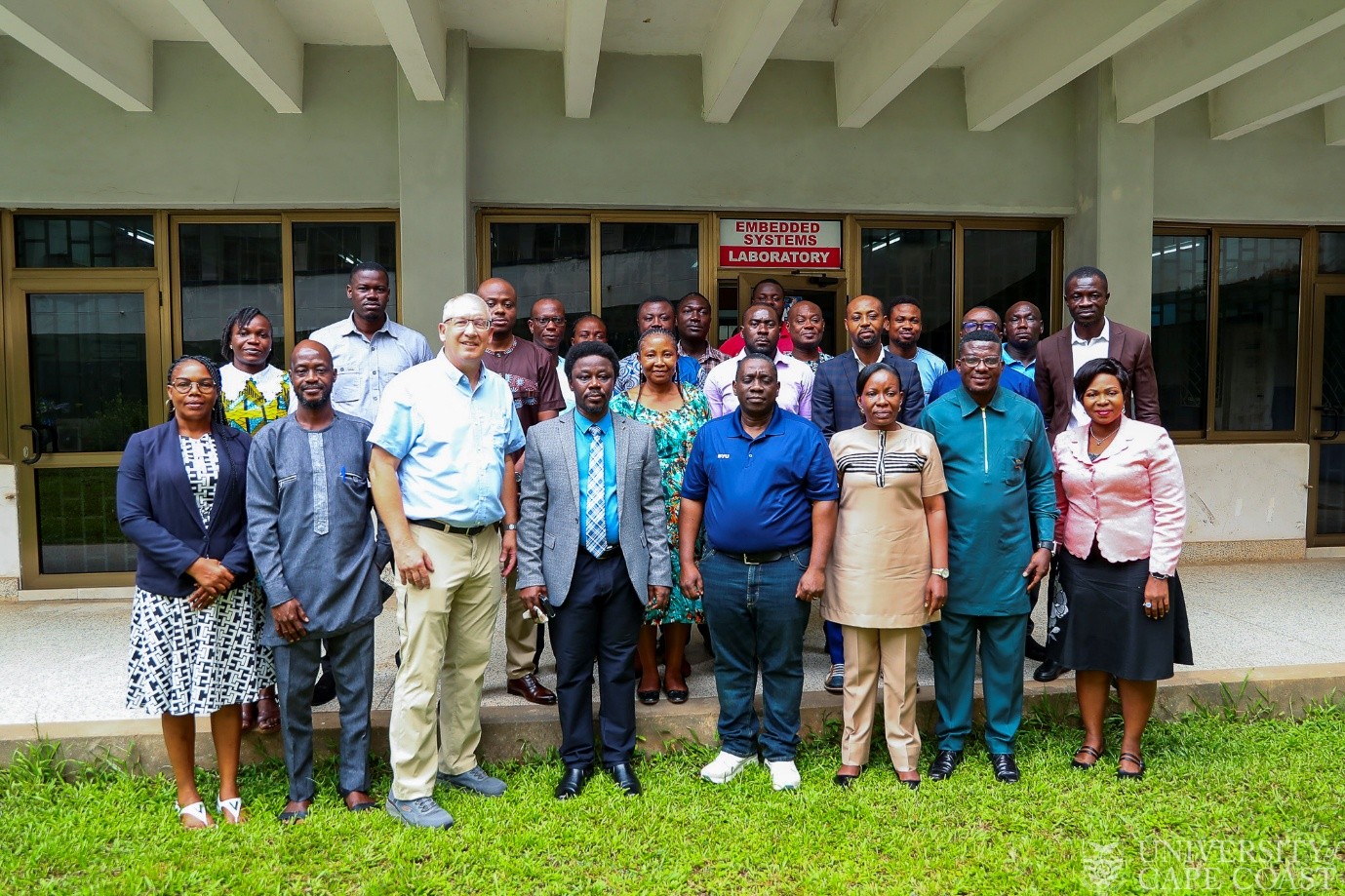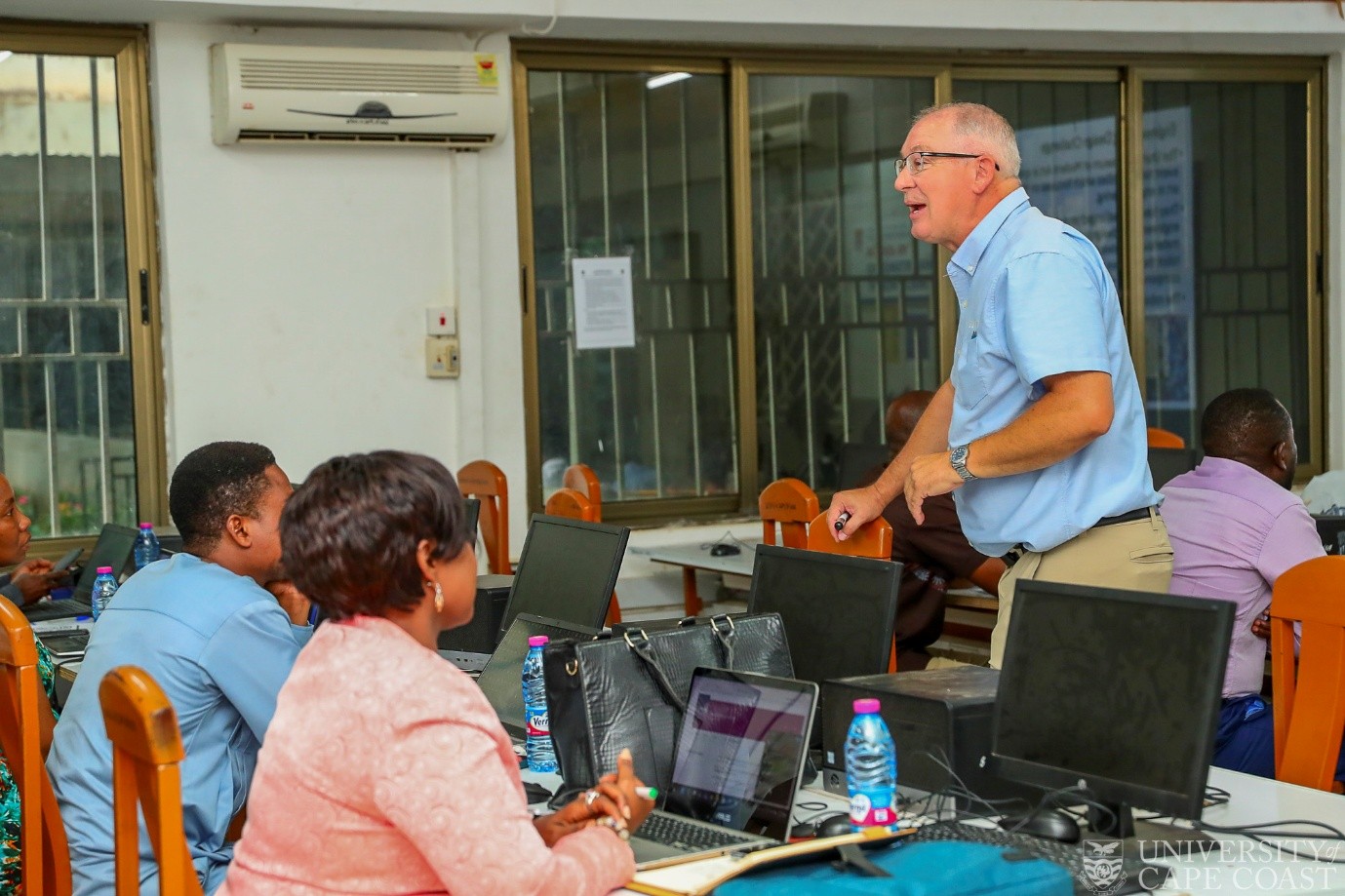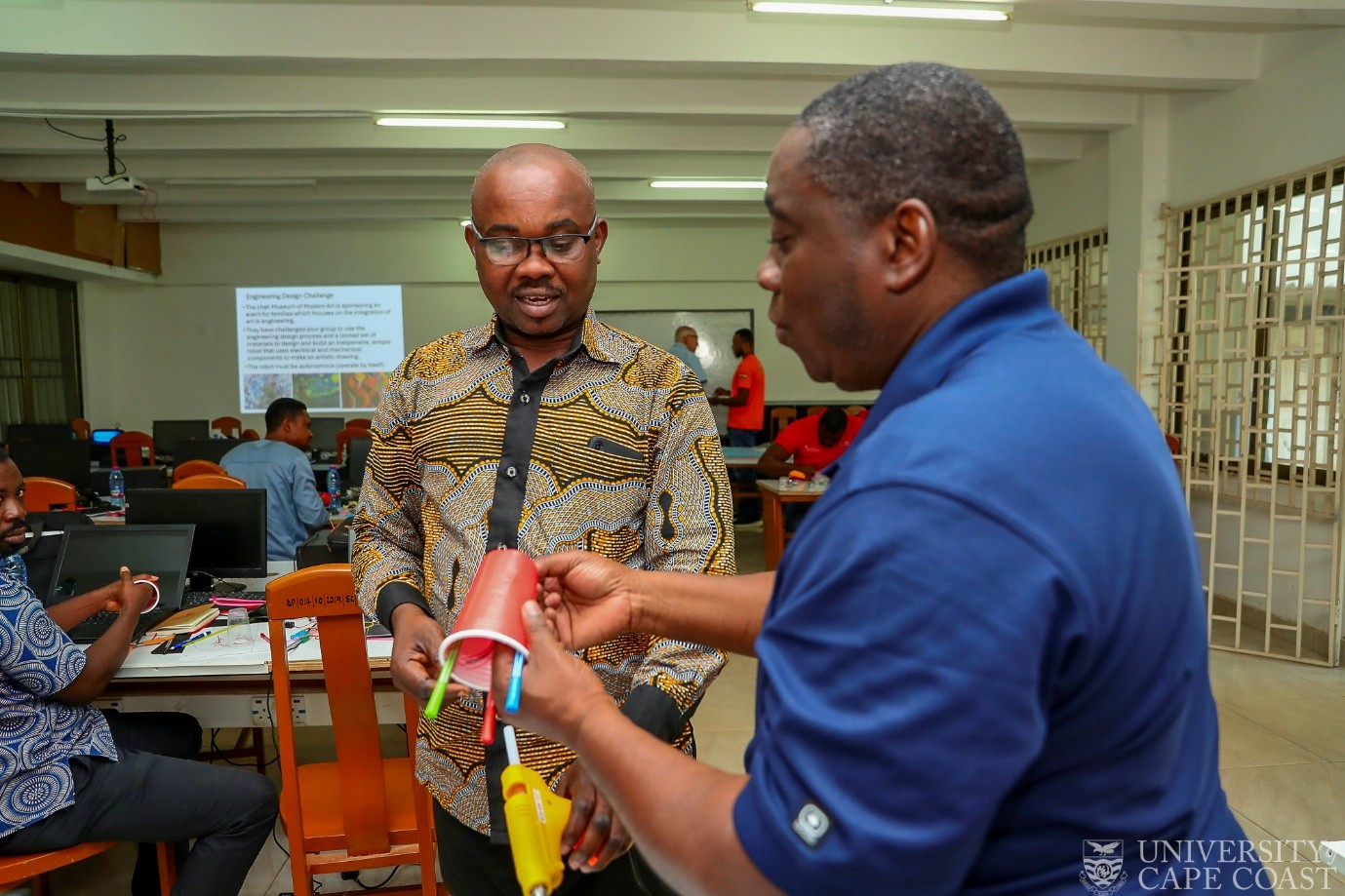The Faculty of Science and Technology Education, under the College of Education Studies at the University of Cape Coast (UCC), has organised a Science, Technology, Engineering, and Mathematics (STEM) Education Workshop to build the capacity of academic senior members from multiple departments.
Participants were drawn from the College of Education Studies, School of Sustainable Engineering, and the Departments of Computer Science, Physics, and Mathematics.
The workshop was facilitated by Mr. Sett Ogoe Anyim, a PhD candidate from Brigham Young University (BYU), USA, and Prof. Stephen Shumway, also from BYU. Mr. Anyim introduced participants to robotics, coding, and how these technologies can be integrated into the classroom. Prof. Shumway focused on low-tech approaches to STEM education, with an emphasis on STEM professional development for educators.
Supporting the facilitators were Mr. Yaw Mireku and Mr. Samuel Okloo from Bountiful Technology in Accra, who provided technical assistance and guidance during the hands-on sessions.
Prof. Shumway during his presentation at the workshop
In his welcome address, the Provost of the College of Education Studies, Prof. Douglas Darko Agyei, stressed the importance of STEM in today’s educational landscape. He noted, “Science, Technology, Engineering, Mathematics (STEM) has become very instrumental worldwide. If we don’t reorganise ourselves to factor in these new developments, we will lose out.”
Prof. Agyei highlighted key strides the College has made in advancing STEM education, including the introduction of a STEM minor programme for teacher trainees, the approval of a programme in Robotics and Intelligent Systems, and the design of a Master’s degree in STEM, which is currently awaiting approval.
He further emphasised the need for collaboration across faculties and urged leaders to take initiative in acquiring equipment to support STEM delivery, despite limited resources.
Prof. Shumway provided a compelling rationale for STEM education by sharing the story of Isaac Newton’s academic journey, highlighting the need for hands-on, creative learning environments. “The goal,” he said, “is to make learners active participants.” He pointed out that often STEM is narrowed down to just science and mathematics, as teachers are less familiar with how to incorporate engineering and technology.
Mr. Sett Ogoe Anyim facilitating a robotics practical session
Drawing on experiences from the U.S., Prof. Shumway advocated for an integrated classroom approach to STEM, noting that, “Engineering design is where math and science come together — this is the model of the industry. Why not bring it into the classroom?”
Participants engaged in both low-tech and high-tech learning activities designed to accommodate schools with varying levels of resources. One of the key activities involved constructing a “scribbler robot” using simple, affordable materials, illustrating how effective STEM learning can be achieved even in resource-constrained settings.
The workshop marks a significant step in the University’s ongoing efforts to enrich teacher education through STEM and equip educators to foster innovation and problem-solving in the classroom.
Participants lauded the programme’s relevance and interactivity. Dr. Kofi Acheaw Owusu, from the Department of Science Education,
described the training as “insightful and impactful,” and called for more frequent sessions to sustain its benefits.
Dr. Regina Esi Turkson, from the Department of Computer Science, echoed this sentiment, commending the College of Education Studies and the facilitators for their commitment.
Source: Documentation and Information Section-UCC



